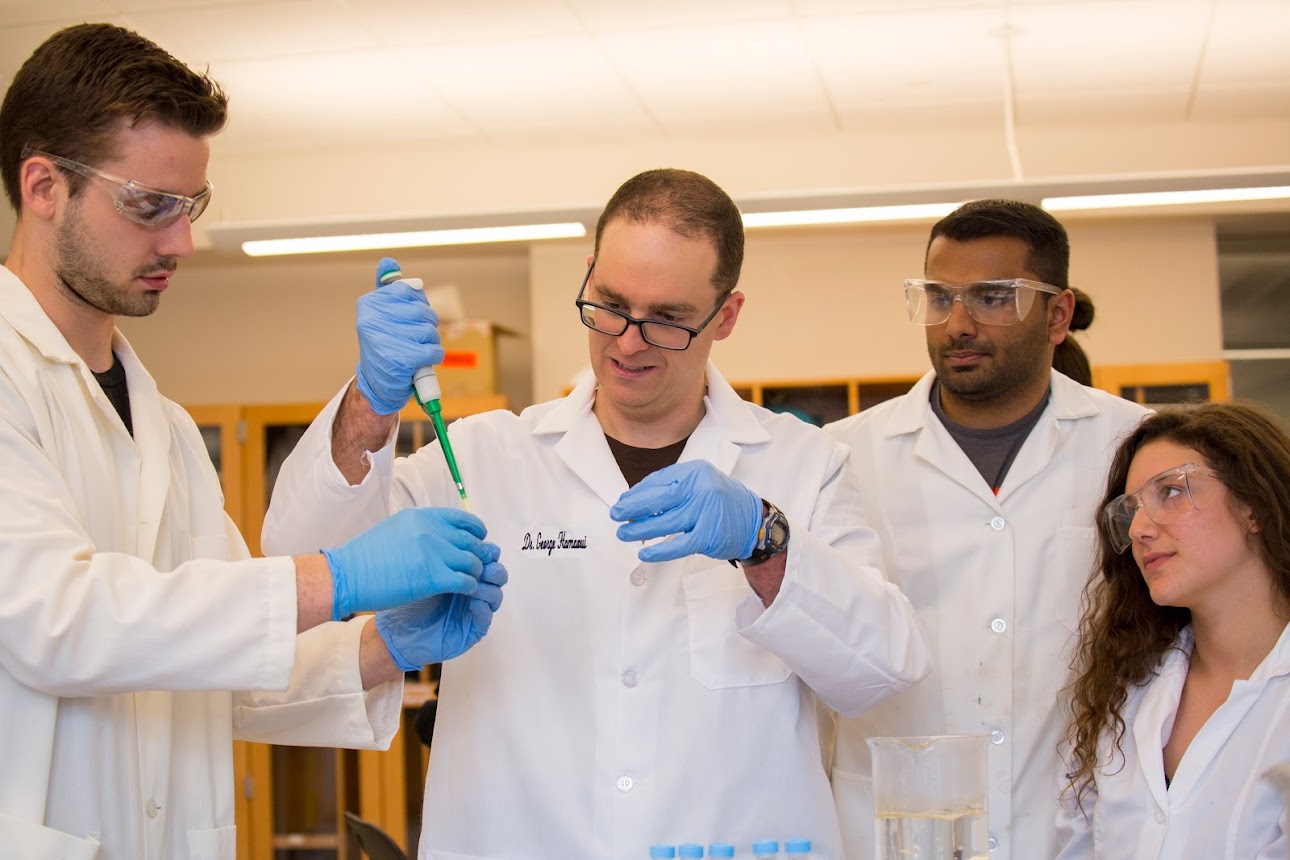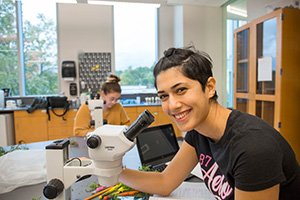General Biology
 Biology Major
Biology Major
General Biology Concentration
The general biology major provides students with a strong background in the biological
sciences, from molecules to organisms to ecological relationships. Advanced courses
build upon information learned in the foundational courses and allow students to pursue
their own areas of interest. The general major is a good choice for students interested
in Botany, Wildlife Biology, Conservation Biology, Marine Biology, and Secondary Education.
A major in traditional Biology prepares students to pursue graduate degrees or to
work in a variety of settings.
Students graduating with a major in Biology will be able to:
• Understand fundamental concepts in the discipline;
• Write a lab report to communicate the findings of a scientific experiment;
• Design an experiment to test a hypothesis;
• Find and analyze primary literature in the field;
• Demonstrate appropriate technical skills in the laboratory;
• Analyze data with appropriate statistical analysis.
Requirements
The general Biology major includes courses from a variety of fields, including biology, chemistry and physics. The required courses are as follows:

BIOL 101 Biology Seminar for Majors (1 cr)
-
BIOL 150 Introduction to Biology I: Cells (4 cr)
-
BIOL 160 Introduction to Biology II: Organisms (4 cr)
-
BIOL 240 Genetics (4 cr)
-
BIOL 302 Applied Statistics in Biology (1 cr)
-
BIOL 354 Ecology (4cr)
-
BIOL 480 Cell & Molecular Biology (4cr)
Biology Electives (300 level or above) (13 cr) -
CHEM 150 Introduction to Chemistry I (4cr)
-
CHEM 152 Introduction to Chemistry II (4 cr)
-
CHEM 201 Organic Chemistry I (4 cr)
-
CHEM 202 Organic Chemistry II (4 cr)
-
MATH 232 Introduction to Statistics (3 cr) or MATH 232H Honors: Introduction to Statistics
- PHYS 131 General Physics I (4 cr)
- PHYS 132 General Physics II (4 cr)
Total Credits: 62
MCLA in 4
 A sample 4-year plan showing a possible sequence of courses in this major.
A sample 4-year plan showing a possible sequence of courses in this major.
Research & Internships
Students in the Biology major have conducted research in a variety of fields, including marine biology, ecology, botany and microbiology, and have completed internships with a local herpetologist at Canoe Meadows Wildlife Sanctuary, with the Massachusetts Department of Conservation and Recreation, and at the Berkshire Bird Paradise, among other sites. Motivated students are encouraged to apply for off-campus research opportunities, such as Research Experience for Undergraduates (REU) programs, and to explore internships and other experiences in their areas of interest.
Advising
A faculty advisor will meet with each student at least once per semester, and information about specific internships, research opportunities, upcoming courses, and other topics is provided to enrolled students on the Biology Department’s Canvas page.
Application Tests
Students interested in graduate school should plan to take the GRE’s general test and Biology subject test. Study materials for these examinations are provided in the Biology department.
Careers & Outcomes
Students who have graduated with a degree in Biology have moved on to graduate programs in biotechnology, education, plant biology and other fields, and are working in a variety of settings, including research labs and hospitals.
